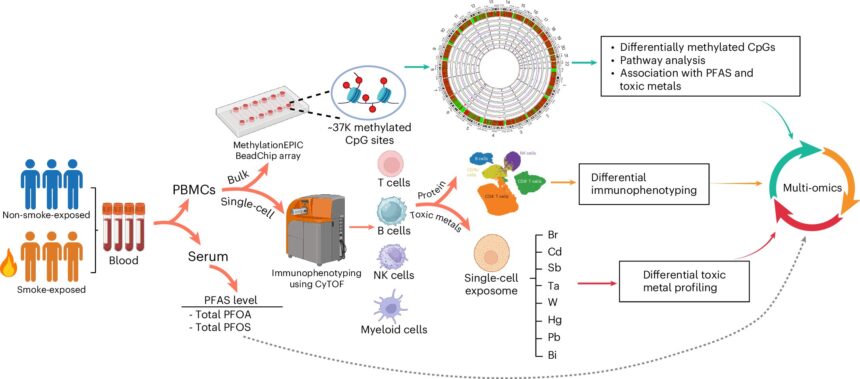A recent study led by researchers at Harvard T.H. Chan School of Public Health has shed light on the detrimental effects of fire smoke exposure on the immune system. The study, published in Nature Medicine, delves into the specific cellular changes that occur in individuals exposed to smoke, highlighting how smoke can cause damage through immune system alterations.
The researchers collected blood samples from two groups of individuals: 31 smoke-exposed adults, including firefighters and civilians, and 29 non-smoke-exposed adults. Utilizing advanced single-cell -omic techniques and bioinformatic tools, the team analyzed individual cells within each sample. The results revealed significant differences in cellular composition and gene expression between the smoke-exposed and non-smoke-exposed cohorts.
Smoke-exposed individuals exhibited an increase in memory CD8+ T cells, as well as elevated activation and inflammation markers across multiple cell types. Furthermore, changes in genes related to allergies and asthma were observed in the smoke-exposed group, along with higher levels of immune cells bound with toxic metals like mercury and cadmium.
Lead author Mary Johnson emphasized the sensitivity of the immune system to environmental exposures, even in healthy individuals. Understanding these mechanisms could lead to earlier detection of immune dysfunction caused by smoke exposure and the development of potential therapeutics to mitigate health effects.
The study’s findings have implications for public health policies and interventions. By elucidating how smoke exposure affects the body at a cellular level, the research could inform public health campaigns and evacuation procedures during wildfires. Additionally, reevaluating the threshold for toxic smoke exposure may be necessary based on these new insights.
Overall, the study underscores the importance of recognizing the impact of environmental contaminants, such as fire smoke, on human health. By gaining a deeper understanding of these effects, researchers hope to pave the way for improved strategies to protect individuals from the harmful consequences of smoke exposure.
This research was conducted by a team of experts at Harvard Chan School of Public Health, including Mary Johnson, Abhinav Kaushik, Olivia Kline, Xiaoying Zhou, and Elisabeth Simonin. The study was published in Nature Medicine and provides valuable insights into the immune impacts of fire smoke exposure.








